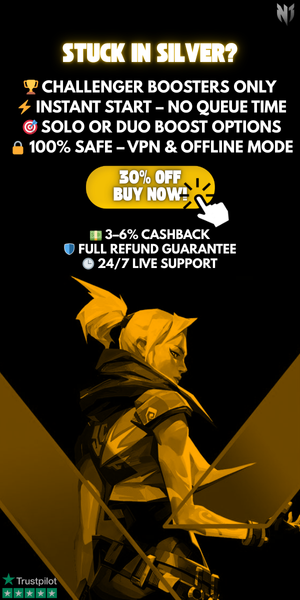Mental Game and MMR
In Valorant, performance isn’t just about mechanics or aim—it’s also about mindset. No matter how sharp your crosshair placement is, tilting can sabotage your performance, drain your focus, and cause steep drops in your MMR. In competitive play, mental discipline can be just as critical as tactical skill. This blog explores the connection between your mental state and your matchmaking rating, and how mastering your mindset can lead to consistent MMR gains.
What is Tilt in Valorant?
“Tilt” refers to a state of emotional frustration or anger that negatively affects gameplay. It often begins after a losing streak, a missed shot, or a frustrating teammate encounter. Once tilt sets in, players tend to make impulsive decisions, ignore communication, and hyper-focus on mistakes. These actions reduce performance, lower win probability, and ultimately drop your MMR.
How Tilt Affects Your MMR
Valorant’s MMR system rewards consistency. Players who maintain a stable level of performance across matches tend to see steady gains. When tilted, your decision-making falters, your communication weakens, and your aim becomes inconsistent—all leading to more losses and poor round impact scores.
Repeated tilt can create a vicious cycle:
- You lose a close game.
- You queue again out of frustration.
- You perform worse due to mental fatigue.
- Your MMR drops further.
Signs You're Playing Tilted
Some key indicators of tilt include:
- Blaming teammates or raging in voice/chat.
- Ignoring agent roles or team comp.
- Rushing fights or pushing solo without strategy.
- Obsessively queuing after a loss to “recover MMR.”
Recognizing these patterns is the first step toward regaining control of your mental game.
Proven Strategies to Prevent Tilt and Protect MMR
- Take Breaks Between Matches
- Avoid back-to-back queues after tough losses. A 10-minute break can reset your focus.
- Limit Daily Ranked Volume
- Set a cap on how many ranked games you’ll play in one session. Quality is more valuable than quantity.
- Focus on Round Impact, Not Just Kills
- Even if you lose, valuable plays like trades, assists, and utility usage contribute to MMR.
- Mute to Protect Focus
- If teammates are toxic, mute them. Communication is key—but only if it’s productive.
- Use Journaling or Tracking Tools
- Record how you felt after each match. If a pattern of tilt shows up, implement cooldown strategies.
The Pro Mentality: Staying Cool Under Pressure
Top-tier Valorant players are calm under fire. They treat each match like a clean slate and rarely let bad plays carry into the next round. Building this mindset isn’t easy—but it’s trainable.
- Practice mindfulness or deep breathing techniques before or during games.
- Remind yourself that one bad game doesn’t define your rank.
- Focus on improvement over ego—every loss is feedback.
Conclusion: Mindset is MMR
Your mindset is your hidden stat. If you can manage your emotions, learn from losses, and maintain mental clarity, your MMR will naturally trend upward. Just as you train your aim, you must train your mind. The strongest Valorant players don’t just click heads—they keep their heads.
Analyze Your MMR Patterns and Stay on Track
Want to know how your mindset is affecting your rank? Visit https://mmrvalorant.com/ to track your MMR trends, identify performance drops, and gain powerful insights that help you maintain a consistent climb.
Tags

Author



